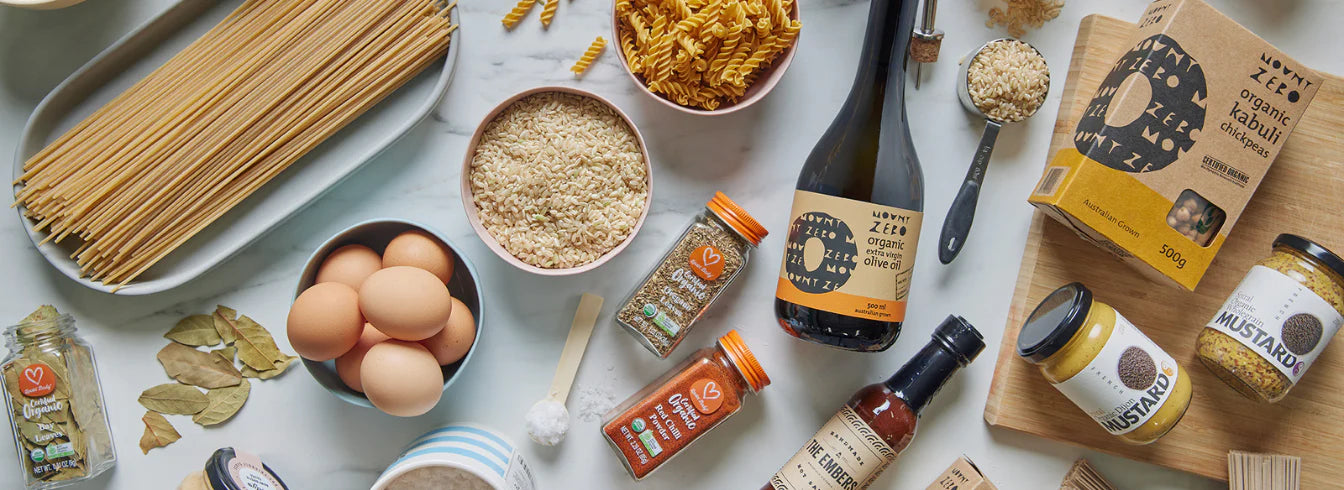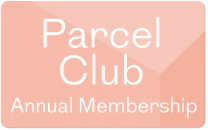
We curate products that are worthy of their place in your home and in this world.
Our Curation Charter guides what we stock (and what we don’t). We believe in a holistic approach to business that is honest, intentional and strives to support people and the planet. For us, it’s part and parcel of running a business in a world of finite resources.
We have high standards because our planet and humanity deserve it, and we hold ourselves and the brands we stock to these standards.
OUR PROCESS.
Finding the very best products, doing the very best things is no small feat, but we are wholeheartedly up for the challenge. Curious (and perhaps a little cynical) by nature, there is nothing we love more than deeply investigating a brand’s sustainability or ethical claims. Our five step process guides how we decide which brands and products are creating real change for people and planet.
Discover.
The first step, of course, is to seek out products that meet our criteria (we’ll get to what that is a bit further down). We love discovering new brands and products that are doing good in the world, and we have a few different ways that we find them. Sometimes we’ll spot a gap in our product range and actively research what’s available on the market, both in Australia and abroad. Oftentimes, our lovely members will recommend a product to us – like Katie from South Australia who asked us to stock her favourite locally-made almond butter, or Peter from Gippsland who put us on to a jam made down the road. And other times we’ll just be strolling through our local Farmers’ Market and spot a new producer and instantly fall in love.
Dive.
Once a product or brand has piqued our interest, we take a deeper look around, diving deep into their ingredients list and website. With your health and the health of the planet in mind, we look into what goes into their products, what it's wrapped in and how it’s grown or made. If it’s still sounding great when they’ll make it to the next step of the process.
Meet.
Call us old-fashioned, but the next thing we do is jump on the phone and call them to find out if their actions live up to their words. Some of the questions we like to ask are:
- How is their product made?
- What credentials do they have or why don’t they have them? For example, some of our suppliers might already be farming organically, but are either in the process of organic certification or don’t yet have capacity to become certified. Learning about how they farm and produce through a conversation means we don’t miss out on incredible products that might not have a certain industry “tick” of approval.
- How do they treat their team and suppliers? We believe in building relationships and we want to build working relationships with people who treat their employees and their suppliers with trust, respect and dignity.
- What their visions for the future of the planet are (and how they’re helping create that vision)? Businesses have the power to either create destruction or positive impact, and we want to work with businesses doing the latter. We want to know what steps they’ve laid out ahead of them – are they working to reduce their carbon footprint or moving towards 100% biodegradable packaging? At the end of the day, by selling their products, we (and you) are supporting their business in achieving their vision, so we want to make sure it’s a great one.
This friendly interrogation not only gives us an opportunity to hear the full story of how and why they make their products, but it can also be the start of an authentic working relationship, because we’re not in business to deal with faceless emails, we’re here to work with real people who we know and trust.
Sample.
Then we simply have to try it for ourselves! We cook, eat, drink, wash and wipe with every single product before we decide that it’s worthy of a spot on our shelves, because the quality and taste need to be as great as the credentials. If we love it and we think you’ll love it too, then we’ll add it to our aisles.Stock.
Job done (almost). We maintain relationships with all of our makers and producers, talking with them often to discuss things like stock and new orders. We also check-in to learn more about their business trajectory – what their visions are and how they’re tracking towards them. We believe in our brands and the good they can do in the world. And of course, if for some reason their business model changes course and their product and values no longer meet our criteria, then we respectfully part ways and remove their products from our store.

Our nuts and seeds by 2Die4 Live Foods are organic and activated, fish by Good Fish are wild-caught and hand-processed, and cleaning products by Koala Eco are natural without harmful ingredients.
OUR CRITERIA
When deciding whether to stock a brand or product, we look at the whole picture – not just the product itself, but how the brand and team operate as a whole. We call it the Part&Parcel Life Cycle.
The Part&Parcel Life Cycle
When researching a brand and speaking with their team, we delve into whether everything they do aligns with our vision for the world – a world where businesses don’t just take, but give back and nourish the world at every step along the way.
This isn’t just about corporate donations, this is about producing, working and collaborating in a way that is holistically better for people and the planet. From growing, right through to giving and beyond, we evaluate the brand as a whole. And by looking at the whole picture, we avoid stocking brands that may meet some criteria but fail miserably at others, for example, Certified Organic products that are produced by a parent company which is run unethically. It also means that we allow space for our brands to evolve and improve their practices over time. Our expectation is that our brands hold a vision and an intention to continue to improve and evolve across all of our Life Cycle categories.
GROWING
What we look for:
- Growing and harvesting practices that replenish and regenerate soil and farming land, e.g. Certified Organic, biodynamic or regenerative farming practices
- Spray and chemical fertiliser free
- Low water usage
- Grass-fed and grass-finished products
- Ethical animal treatment
What we avoid:
- Toxic fertilisers
- GMO
- Mono-culture mass farming
MAKING
What we look for:
- Fair Trade certification (or beyond)
- Ethically sourced ingredients and other inputs
- A family-approach to employees and suppliers – e.g. flexible work hours, parent-friendly workplaces, fair supplier contracts
- Low-waste packaging (plastic-free, compostable or minimal)
- Australian (we look globally when local producers can’t meet our criteria)
- Production facilities that are off-grid or powered by renewables
What we avoid:
- Harmful ingredients like refined sugar, sulphites and sorbates, preservatives and artificial colours
- Exploitative supply chains
- Unsafe or unethical employee work conditions
GIVING
What we look for:
- Community give-back initiatives in local community and/or supplier’s community
- Engagement and relationships with their community
What we avoid:
- Profit only for the benefit of shareholders
EVOLVING
What we look for:
- A vision and intention to constantly improve on ethics, sustainability and community initiatives
- A pathway towards plastic-free and/or post-consumer packaging
- A pathway towards carbon neutral production
- A pathway towards regenerative farming practice
What we avoid:
- Business growth and expansion with profit as the only metric of success

Off-grid and biodynamic farming by Mount Zero, Fair Trade cacao by Loving Earth & carbon offsetting by Ethique.
OUR VISION
We have a bold vision for our brands and for ourselves, and we believe that by supporting each other, we can all get there.
We envision a world where:
- All products utilise plastic-free and/or post-consumer packaging
- All brands manufacture and operate in carbon neutral facilities
- Ethical and sustainable brands dominate the market
- Businesses adopt not just sustainable, but regenerative, principles
- All brands consider the health and wellness of their consumers
This vision may sound ambitious, but it isn’t impossible. In fact, many of our brands are already well on their way to ticking all these boxes. Like Koala Eco who use 100% post-consumer plastic packaging, or 2Die4 Live Foods and RawHoney who manufacture in off-grid facilities. Our job at Part&Parcel is to bring these brands together so that you, the conscious consumer, can find them and support them too.


